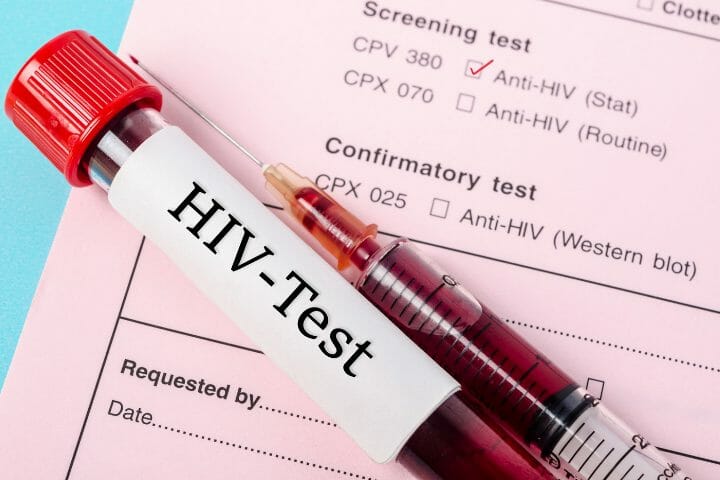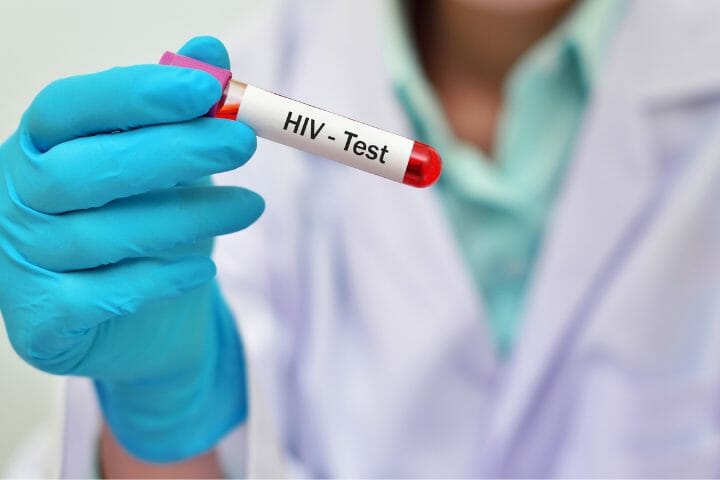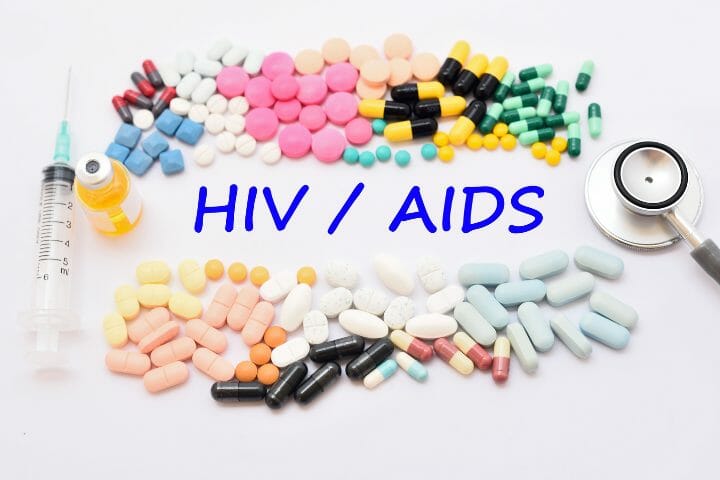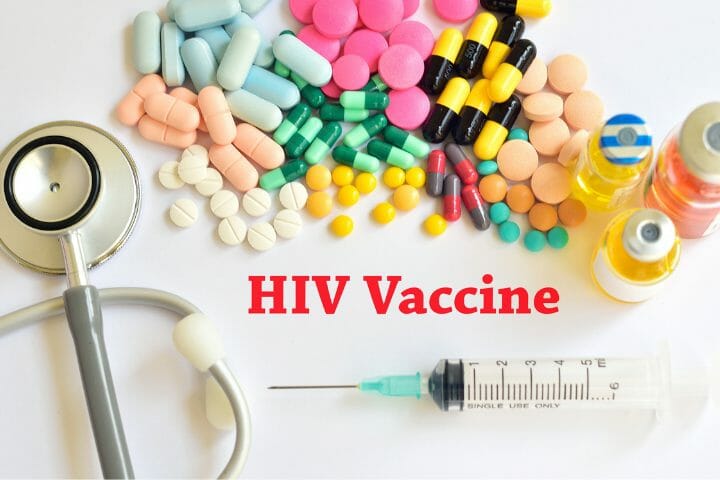If you are suffering from HIV, the constant care that you need to take and always feeling afraid takes a toll. But is HIV considered a disability? Is this constant mental and physical anguish a hardship that the government recognizes?
Contents
The human immunodeficiency virus (HIV) is an anti-repair virus that targets our immune system leading to the gradual loss of the immune system’s function. The most significant result associated with HIV infection is the acquired immunodeficiency disorder (AIDS).
Whether HIV is a disability or not, there is no one answer to this question as people with HIV have unique needs that may require accommodations in the workplace. Still, some experts say that HIV should be considered a disability because of the unique challenges, such as difficulty maintaining employment and the stigma attached with the disease.

Others argue that people diagnosed with HIV should not receive special benefits, because their disease does not prevent them from working. The legal status of HIV will likely continue to evolve as new medical treatments are developed.
HIV and AIDS Are they a disability?
The ADA recognizes HIV and AIDS as a condition that affects everyone who suffers from one of the conditions. However, the Social Security Administration (SSA) does not. A disability in the SSA means that an individual cannot work, which makes them ineligible to get a monthly payment through the federal government.
According to SSA rules, individuals have considered disabled if their medical condition makes them unable to work for a minimum of 12 months. Also, they are eligible if doctors anticipate that their illness will cause the death of a person.
How is HIV different from AIDS?
HIV is a virus that attacks the immune system and can lead to AIDS. HIV is different from AIDS because HIV can lead to AIDS, but not everyone with HIV will develop AIDS. AIDS is the most advanced stage of HIV infection and can be deadly. There is no cure for HIV or AIDS, but treatments available can prolong a person’s life.
HIV is an infection caused by a virus. It is a tiny infectious agent that can multiply by taking control of cells within a host’s body.

AIDS, however, contrary to what it sounds, is a condition that is a collection of symptoms typically caused by a single infection or virus. When a person contracts HIV, the initial phase of illness lasts between 2 to 6 weeks, as the virus targets the immune system.
Following this time, the virus is dormant and slowly depletes T cells in our immune system for as long as ten years without causing any symptoms. If HIV comes back after its dormant phase, it targets those T cells, affecting the immunity system’s capabilities.
AIDS is recognized when HIV has reduced the number of T cells to less than 200 per milliliter of blood, which permits the spread of diseases or infections that target an immune system that is compromised and can manifest within a patient.
You might also like to read: Can You Get Disability For Lung Disease?
Is HIV a Disability?
The Social Security Administration (SSA) defines a disability as an impairment that “substantially limits one or more major life activities.” HIV can meet this definition and be considered a disability under SSA and the Americans with Disabilities Act (ADA).
To qualify for benefits under SSA, a person with HIV must have an illness that meets the agency’s definition of a disabling condition. This includes having an AIDS-related illness, which is considered a terminal illness.
In 1988, the Social Security Administration (SSA) began listing HIV infection as a disabling condition. This decision was based on two factors: first, that HIV infection could lead to AIDS, and second, that people with AIDS were often unable to work.
HIV is no longer a death sentence, and many people living with HIV can work. For this reason, in April 2014, the SSA proposed removing HIV from its list of disabling conditions.
After a public comment period, the SSA announced in November 2014 that it would remove HIV from the list. So for HIV, there is no direct listing in SSA.
People with HIV may also be eligible for benefits under the ADA. If you have a mental or physical condition that stops your from doing your major life activities, the ADA will treat it as a disability.
People with HIV can meet this definition if they cannot work because of their illness or experience discrimination based on their HIV status.

Life-enhancing activities covered under the ADA also cover essential bodily functions that aren’t evident, for instance, the function of the body’s immune system. Because a person suffering from HIV or AIDS is afflicted with a compromised immune system and a weak immune system, the ADA is adamant that the condition be impaired even if there are no symptoms.
The ADA protects from all discrimination at work. It also covers:
- Recruitment
- Training
- promotions
- firing
The ADA applies to private companies with at least 15 employees and public bodies with any size workforce. The employer is obligated to make reasonable accommodations for people with disabilities under the ADA
Eligibility for SSA benefits
If you have AIDS, you may be eligible for benefits from the Social Security Administration (SSA). The SSA offers disability benefits to people who cannot work because of a medical condition. To qualify for benefits, you must meet the SSA’s definition of disability.
If you are unable to be part of a substantial gainful activity (SGA) because you have a physical or mental condition, it will be treated as a disability by the SSA.
The disease should also be expected to last for at least 12 months or result in death. To qualify for benefits, your impairment must meet or medically equal one of the impairments listed in the SSA’s “Blue Book.”
People with AIDS often meet or medically equal one of the impairments listed in the Blue Book under section 14.00. For example, people with AIDS often have problems with their immune system, which can lead to other medical conditions.
You might also like to read: Can You Get Disability For Cirrhosis?
The Costs of HIV Treatment
HIV treatment requires ongoing costs, including regular doctor visits, prescribed copays, deductibles, and prescription copays. Regular laboratory work and other diagnostic tests are required to check immunity and identify infections and other issues early. As the illness progresses, hospitalization and emergency rooms are becoming more common.
The ongoing medical costs add up quickly and make it difficult for HIV patients to pay expenses. This is particularly the case if the income earned from work is insufficient because of work absences or loss of jobs.
As per the CDC, the median lifetime cost for the treatment of HIV is $379,668. For most individuals, Highly Active Antiviral Therapies (HAARTs) make up most of the treatment costs. Healthline says that prescriptions for antiviral drugs typically range between $600 and $2700 per month. There isn’t a generic alternative for the vast majority of these medicines.

How to Qualify for Benefits without Meeting a Disability Listing
To allow HIV to be eligible for benefits, even if you don’t meet the criteria for a disability list, you must:
- Maintain complete medical documents
- Find a doctor who can give a strong summary on your behalf.
- Have the ability to complete “function report forms” that give a compelling reason to believe that you’re disabled regardless of whether you qualify under the Blue Book
Functional reports are a common component of the “residual functional capacity” (RFC)analysis the SSA must complete when an applicant is not eligible under a disability list. The RFC examines the physical and mental limitations of an individual’s HIV manifestations, complications, and treatment. The SSA analyzes your daily activities and ADLs to determine the extent to which you’re affected by health problems.
Applying for Disability Benefits with HIV
The SSA generally requires the same medical documents regardless of whether you can qualify by an RFC Blue Book or through an RFC assessment. This includes but isn’t limited to:
- Lab reports that confirm a positive HIV diagnosis
- CD4 test results indicate the severity of your immune system’s decline and how vulnerable you are to the spread of opportunistic infections
- Records of hospitalization or emergency rooms dating back at minimum one year
- Diagnostic reports (like biopsies, laboratory work, or imaging tests) detailing the problems with HIV, such as cancer when present or damage to organs

What Is Medical Evidence Required to Get Disability for AIDS or HIV?
The most straightforward way to be eligible for disability due to HIV/AIDs is by meeting the requirements outlined in Social Security’s official listing of disabilities in the case of HIV infection. You’ll require appropriate documentation to prove that you’ve received the diagnosis of HIV infection and have a significant illness or complication.
Your medical evidence should include documentation from your doctor that shows:
(1) you have AIDS or HIV,
(2) you are currently experiencing symptoms related to your illness, and
(3) those symptoms are preventing you from working. If you provide this evidence, the SSA will likely approve your claim for disability benefits.
You might also like to read: Can You Get Disability For Lymphedema?
Diagnosis of HIV or AIDs
To show that your “meet” Social Security’s list of HIV as well as AIDS, you have to first demonstrate through a proof of medical treatment that you’re HIV positive or suffer from AIDS.
There are various ways to demonstrate that you have an HIV infection, including laboratory tests or other medical tests. Social Security will attempt to obtain your laboratory results or any additional medical examinations from your physician or hospital if you’ve taken these tests. If you don’t have them, Social Security may pay to get the tests performed if no documents are available.
The most commonly used laboratory tests are:
- HIV test for antibodies
- HIV DNA or the RNA detection test
- HIV p24 antigen test
- The isolation of HIV in viral culture and
- Other precise tests are used to detect HIV.

Medication and Effects of Treatment
Two significant aspects Social Security looks at regarding medicines are their effectiveness in reducing your symptoms and the potential side effects associated with this medication.
Suppose you don’t fit the criteria for the list of HIV-AIDs disabilities. In that case, however, you might still be eligible to receive disability benefits if your medication significantly impacts your capacity to perform.
In particular, they’ll take note of any adverse reactions that you may experience, along with the length of time and the difficulty it is to adhere to your treatment program and the duration of your treatment, and the effect of the treatment you receive on your mental performance.
Common side effects of medication for HIV/AIDS are diarrhea, hypersensitivity, stomach nausea, pain and vomiting, Anemia, numbness, burning and tingling sensations, dizziness, fatigue, difficulties sleeping, headaches, anxiety, depression, general weakness along with joint pain.
Certain people may also experience more severe adverse side effects, like an accumulation of sugar, acid, and fats in the blood or liver damage.
Tips For A Successful Social Security Disability Claim
- Make copies of all your HTML0 documents. Keep an exact copy of your completed application and any disability or work history reports you submit. If you ever have to appeal, you’ll have all your paperwork.
- The initial application will be dealt with by the local office known as”the “field office” (FO). Find out who is in charge of your application at the FO. You should contact that person at least once a week to determine whether additional information is required to support your claim. Keep on trying and keep in touch.
- Find your doctor to back you in your Social Security disability claim. Without your doctor’s records, Social Security cannot make an accurate decision on your claim. Many claims are denied because the Field Office didn’t receive critical medical documents. Call your doctors and ensure that they’re aware of your SS claim. Provide all the required records.

Frequently Asked Questions
Q1. When was HIV considered a disability
The Americans with Disabilities Act (ADA) of 1990 is an act of civil rights that protects disabled people from discrimination. The ADA recognizes HIV and AIDS as disabilities that significantly limit one or more life activities regardless of whether the person suffers from symptoms.
However, individuals suffering from HIV or AIDS could or might not be eligible for Social Security benefits, depending on the severity of their disease.
Q2. Is HIV a long term disability?
While HIV is not always a long-term disability, it can be long term for some people after it has become AIDS. Individuals with disabilities that are AIDS related can have problems that last for years or even decades. People with HIV may need help with basic activities like bathing, dressing, and cooking. They may also need help coping with emotional problems.
Wrap Up
The ADA defines HIV and AIDS as disabilities, which means that people with these conditions have the right to protection from workplace discrimination. This law also protects individuals who suffer from HIV and AIDS from discrimination at numerous public organizations like retailers, hotels, and dental offices.
To conform to the ADA, the managers and employers of public places must make reasonable accommodations to provide services or employment for those with these conditions. Thank you for reading the article, we hope we have been able to cover all the things that you need to understand about the basis of disability application for HIV. Do let us know if we missed out on something in the comments box below.
